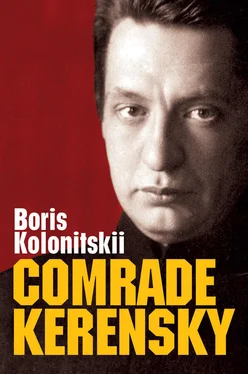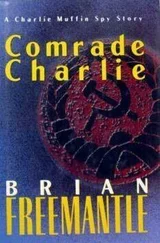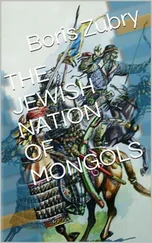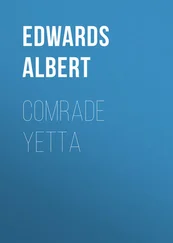At about 3:00 pm on 27 February, the socialists came to Rodzyanko and Kerensky, seeking accommodation in the Tauride Palace for the emergent Soviet of Workers’ Deputies. With Rodzyanko’s permission they were allocated the hall of the budget commission and the adjacent office of its chairman. A provisional executive committee was created, which took the initiative of convening the Soviet, and at about the same time Kerensky and Chkheidze authorized the issue of Izvestiya Komiteta zhurnalistov [News of the Journalists’ Committee]; this newspaper became a crucial source of information for the residents of Petrograd. 180
When students with drawn swords delivered Shcheglovitov to the Duma, Kerensky arrested him ‘in the name of the people’, brushing aside Rodzyanko’s attempt to treat the chairman of the upper chamber as a ‘guest’. 181This outcome reflected a shift in the balance of power in the Tauride Palace: the authority of the Trudovik leader had greatly increased, and the chairman of the Duma had no option but to acknowledge the fact. Rumours that Kerensky had arrested Shcheglovitov and personally locked him up spread throughout the city. The arrest was a key moment in the myth of the revolution and influenced perception of Kerensky as the real Leader of the coup.
Vladimir Zenzinov, a prominent Socialist Revolutionary, wrote in the first issue of the party’s newspaper: ‘A. F. Kerensky refused to release Shcheglovitov from the Duma, locked him up in the ministerial pavilion, and obliged those present to take the path of revolution. This moment was one of the turning points of the movement.’ Zenzinov returned to this episode in his memoirs, noting that it had been one of the important ‘gestures’ which determined the course of the revolution. 182Kerensky’s supporters often made mention of the arrest of Shcheglovitov after the February Days, sometimes presenting it not as a spur-of-the-moment act but as a prudently and meticulously prepared blow devised by the Leader of the revolution to crush the old regime. It was claimed that Kerensky had had a list of people to be arrested. 183Some of his biographers see the arrests he ordered as enabling him to uncover conspiracies against the people’s revolution on the part of servants of the old regime. It is said that his skilful questioning of them helped him win the battle against ‘enemies of Russia’ and carry the coup forward to a successful conclusion.
Kerensky also managed, however, to prevent summary justice being meted out to those who had been arrested and brought to the Tauride Palace. This also strengthened his authority. Some contemporaries saw it as a demonstration of the power he wielded, while others saw it as proving, more importantly, that the young Duma deputy was humane and opposed to rough justice.
Meanwhile, a closed meeting of State Duma deputies elected from its midst a Provisional Committee of the State Duma to restore order in the capital and communicate with individuals and institutions. The committee was charged with monitoring how the situation was developing and with taking appropriate measures, up to and including assuming full executive power. Rodzyanko was appointed chairman and Kerensky was included as a member. The committee tacitly endorsed Kerensky’s action in arresting the tsar’s top officials and confirmed his authority. 184
On the evening of 27 February, at the first meeting of the Petrograd Soviet of Workers’ Deputies, Kerensky was nominated by the Socialist Revolutionaries and elected to the Executive Committee of the Soviet, then appointed vice chairman of the Soviet. He was absent from the meeting and learned of his appointments only later. 185He was also absent from the first meeting of the Executive Committee.
A majority of those setting up the Soviet, activists of the socialist parties, were wary of this dynamic politician but, in appointing an influential Duma deputy to the post of vice chairman, evidently felt they were consolidating their own positions. (The setting up of the Soviet itself had come about with Kerensky’s help.) 186
His bold speeches to the mutinous soldiers, his personal contact with the centres of the protest movement and, finally, his arresting of the tsar’s ministers all gave Kerensky exceptional popularity. Of the protagonists known to the general public, only he had acted so decisively and brilliantly. ‘He was the only person who flung himself with total abandon and confidence into the chaos of the popular movement. Only he had every right to talk to the soldiers as “we” and believed that the masses wanted exactly what was historically necessary at that moment,’ recalled the Trudovik Vladimir Stankevich. The unique role played by Kerensky was acknowledged by the Social Democrat Nikolai Sukhanov, who was later to become a harsh critic. ‘The indispensable Kerensky of the last gasp of tsarism; Kerensky the monopolist of those days of February and March’. Some conservative members of the Duma perceived him, indeed, as a revolutionary dictator. 187
Kerensky’s wife had her own perspective on the feverish pace of his actions during the February Days. ‘Those first days he never left the Duma, working day and night, and only when they had worked themselves to a standstill did he and other deputies force themselves to take a short nap, collapsing where they were, on the sofas and chairs in the offices of the Duma.’ At times those close to him literally forced him to drink a cup of coffee or a glass of brandy. The journalist Alexander Polyakov recalled, ‘On the steps of a small staircase leading to the journalists’ box, A. F. Kerensky was sprawled, completely exhausted, and his wife was spooning egg yolks she had brought in a tumbler from home into his mouth.’ At times the deputy seemed only semi-conscious, which mesmerized the agitated crowd. Kerensky was to recall rather nostalgically that state of extreme stress. For him, the February Days remained the most important and ‘real’ period in his life. ‘It’s worth living to have felt such ecstasy,’ he explained. 188
He was sometimes depicted later as a bloodthirsty mutineer, but those assertions appeared in the press only in the autumn. For example, Vladimir Purishkevich’s newspaper claimed in October that Kerensky had done nothing during the uprising to prevent officers from being beaten and humiliated. 189In the first months of the revolution, however, Kerensky’s role was described only in positive terms and confirmed his status as Leader. It is perhaps only to be expected that his biographers saw the success of the coup as being due to Kerensky’s actions, but his contribution was rated highly in political resolutions adopted at the time. If journalists supportive of him exaggerated his role, so did many rank-and-file participants in the events. For example, Nikolai Kishkin, the Provisional Government’s commissar in Moscow, declared in early March, ‘I can testify that, but for Kerensky, we could never have achieved as much as we have. His name will be inscribed in letters of gold in the annals of history.’ 190
Kerensky’s reputation as the revolution’s champion was central to creating his image of ‘the Leader of the people’. When Kerensky was seeking to bolster his authority, he frequently harked back in his speeches to those days. His supporters, defending their Leader’s decisions and deflecting attacks on him, also referred back to the exceptional role he had played in ‘the February Days’.
Kerensky’s 1917 biographies dwell particularly on that period, usually bringing in his ‘prophetic’ speeches and his arresting of representatives of the old regime, while his actions leading to the entry of the mutinous troops into the Duma are seen as uniquely endorsing him as the best politician to stand at the head of the revolution.
Читать дальше









